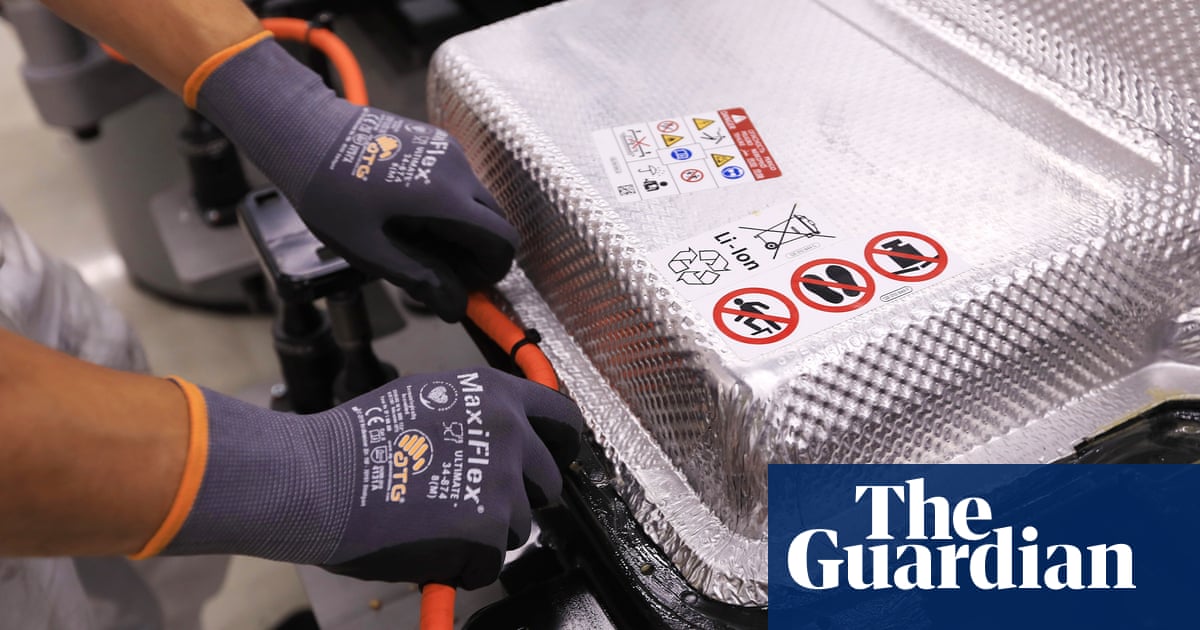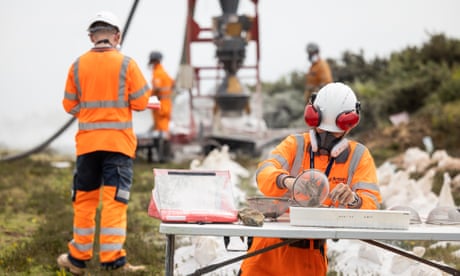Hamartia Antidote
ELITE MEMBER

- Joined
- Nov 17, 2013
- Messages
- 35,188
- Reaction score
- 30
- Country
- Location

EU moves to cut dependency on China for battery and solar panel materials
Parliament votes to cut mining red tape and diversify its supplies of raw materials such as lithium and silicon
Parliament votes to cut mining red tape and diversify its supplies of raw materials such as lithium and silicon
The EU has voted in a plan to secure more of the critical materials needed to make solar panels, electric car batteries and other key elements of its green transition.
The European parliament agreed on Thursday to diversify its supplies of critical raw materials and cut red tape for mining companies. In an attempt to reduce its dependency on China, it plans to ensure that by 2030 it does not rely on a single country for more than 65% of its supply of any strategic raw material.
The details of the act, which was passed with 515 votes in favour and 34 against, will now be negotiated between the parliament and the council.
“The path towards European sovereignty and competitiveness has been set,” said Nicola Beer, a German MEP with the liberal Renew Europe grouping, who was in charge of the proposal. “With an overwhelming majority across political groups in the vote, the European parliament has made its position on security of supply very clear.”
To run its economy on clean energy instead of fossil fuels, the EU needs critical raw materials such as lithium for electric car batteries and silicon for semiconductors in solar panels. It currently relies on a handful of countries including China to supply them.

UK to gain first lithium mine in Cornwall in boost to electric car industry
Read more
“There will be no e-mobility without batteries, and there won’t be more batteries without more lithium,” said Hildegard Bentele, a German MEP from the centre-right European People’s party and the group’s lead negotiator for the proposal. “A credible and strategic raw materials policy must increase our supply from reliable sources.”
The new proposal sets targets for extracting, processing and recycling critical raw materials. It calls for the EU to build the capacity by 2030 to extract materials meeting at least 10% of its demand and process materials meeting 50% of its demand, with a clause allowing for up to 20% of new processing capacity to come from partnerships with emerging markets. It should also boost recycling capacity to collect, sort and process 45% of the strategic materials in its waste for recycling.
The demand for imports could be decreased with better material efficiency and recycling, said Mohammed Chahim, a Dutch MEP with the centre-left Socialists and Democrats and the group’s lead negotiator for the proposal. Compared with the original plan put forward by the European Commission, he added, “we have expanded the scope of national circularity plans to include more reuse, refurbishment and recycling”.
Global demand for each of the five key critical minerals – nickel, cobalt, lithium, copper and neodymium – will grow by 1.5 to seven times by the end of the decade, according to a net zero emissions scenario from the International Energy Agency.
Since Russia invaded Ukraine and exposed the continent’s overreliance on imports of Russian gas, European politicians and businesses have raced to source key minerals from a wider range of suppliers.
“Securing and diversifying our supply of critical raw materials is crucial, and this was recognised by the European parliament today in some key improvements to the act,” said Markus Beyrer, the head of the industry lobby group BusinessEurope. “We particularly welcome its support for timely permitting processes, the reduction of red tape for companies and the focus on enhancing partnerships with trading partners.”
Some environmentalists have raised concerns that the act will open up countries such as Finland, which is home to a range of critical minerals, to mines that are too poorly regulated to protect nature. They have criticised the proposal for speeding up the issuing of permits without raising the environmental standards that mining companies must follow.
Mines in Europe should reflect their true cost, said Satu Jaatinen, who sits on the board of MiningWatch Finland, an environmental nonprofit. “The mines can be made sustainable. The battery industry can be made sustainable. The only thing is that they need is to take on board the technologies that exist – but they don’t want to because it’s an extra investment,” she said.


